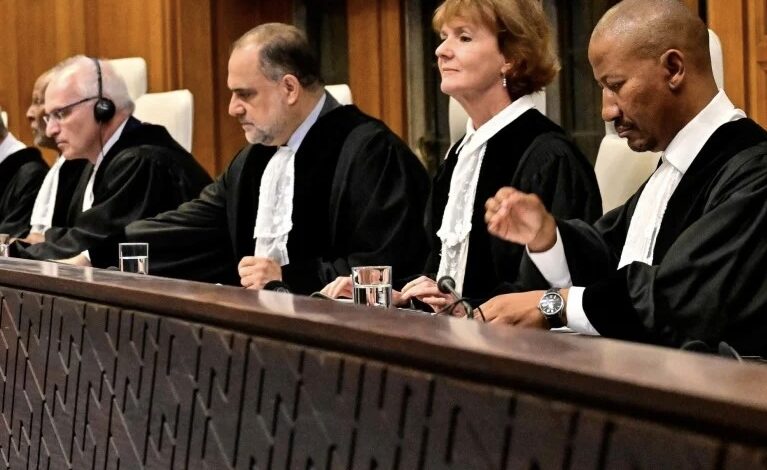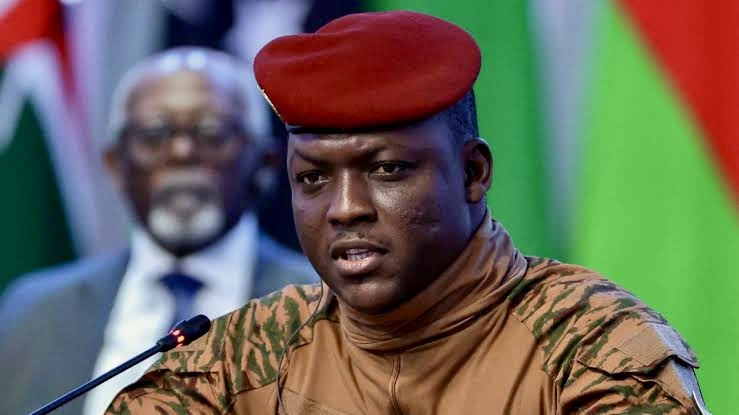
Faith Nyasuguta
The top United Nations court has ordered Israel to immediately halt its military offensive in the southern Gaza city of Rafah. However, the court stopped short of mandating a cease-fire for the entire enclave. Although Israel is unlikely to comply with this order, it will increase pressure on the already isolated country.
Criticism of Israel’s conduct in the Gaza war has been mounting, especially as the focus shifted to Rafah. This week alone, three European countries announced they would recognize a Palestinian state, and the chief prosecutor for another international court requested arrest warrants for Israeli leaders and Hamas officials.
Israeli Prime Minister Benjamin Netanyahu faces significant domestic pressure to end the war, which was sparked when Hamas-led militants launched an attack on Israel, killing 1,200 people, most of them civilians, and taking around 250 hostages. Thousands of Israelis have been participating in weekly demonstrations, urging the government to secure the hostages’ release, fearing that time is running out.
The ruling by the International Court of Justice (ICJ) represents a blow to Israel’s international standing, though the court lacks the enforcement power to ensure compliance. In a similar situation, Russia has ignored a 2022 ICJ order to halt its invasion of Ukraine.
Israel has signaled it will also disregard the ICJ’s directive. “No power on earth will stop Israel from protecting its citizens and going after Hamas in Gaza,” said Avi Hyman, a government spokesperson.
Following the ruling, Netanyahu announced a special ministerial meeting to decide the response. Opposition leader Yair Lapid criticized the ICJ’s decision. “The fact that the ICJ did not even directly connect the end of the military operation in Rafah to the release of the hostages and to Israel’s right to defend itself against terror is an abject moral failure,” he said.

The court’s president, Nawaf Salam, delivered the ruling as a small group of pro-Palestinian protesters demonstrated outside. The court expressed concerns about an operation in Rafah earlier this year, which have now materialized. The ICJ ordered Israel to “immediately halt its military offensive” in Rafah to prevent conditions that could lead to the “physical destruction in whole or in part” of Palestinians there.
Rafah, located in the southernmost part of the Gaza Strip on the border with Egypt, has become a refuge for over 1 million people fleeing conflict elsewhere in Gaza. Many of these displaced individuals are living in crowded tent camps. Israel has been preparing to invade Rafah, which it claims is Hamas’ last major stronghold, despite warnings from several allies that an all-out assault could lead to disaster.
Israel began issuing evacuation orders about two weeks ago as it initiated operations on the outskirts of Rafah. Since then, the army estimates that around 1 million people have left the area as military forces press deeper into the city.
Rafah also houses a critical crossing for aid, and the U.N. reports that the flow of humanitarian aid has significantly decreased since the incursion began, though commercial trucking has continued. The ICJ ordered Israel to keep the Rafah crossing open, noting that “the humanitarian situation is now to be characterized as disastrous.”
However, the court did not mandate a full cease-fire across Gaza, as South Africa had requested during hearings last week. Zane Dangor, the director general at the South African Foreign Ministry, described the order as groundbreaking. “This order is groundbreaking as it is the first time that explicit mention is made for Israel to halt its military action in any area of Gaza, this time specifically in Rafah,” he said.
South Africa plans to ask the U.N. Security Council to enforce the ruling and allow independent investigators into Gaza to determine if there has been genocide.
Balkees Jarrah, associate international justice director at Human Rights Watch, emphasized the seriousness of the situation facing Palestinians in Gaza, who have endured blockades on basic services and humanitarian aid amid ongoing fighting. Jarrah urged governments to use their influence, including arms embargoes and targeted sanctions, to press Israel to comply with the court’s measures.
The cease-fire request is part of a broader case accusing Israel of committing genocide during its Gaza campaign. While the case will take years to resolve, South Africa seeks interim orders to protect Palestinians in the meantime. The ICJ ruled that Israel must allow access for any U.N.-sent fact-finding or investigative missions to look into the genocide allegations.
At public hearings last week, South Africa’s ambassador to the Netherlands, Vusimuzi Madonsela, urged the court to order Israel to “totally and unconditionally withdraw” from Gaza. The court has already noted that Israel’s military operations pose a “real and imminent risk” to Palestinians in Gaza.

Israel’s offensive has resulted in over 35,000 Palestinian deaths, according to Gaza’s Health Ministry, which does not distinguish between combatants and civilians. The operation has devastated entire neighborhoods, displaced hundreds of thousands of people, and pushed parts of Gaza into famine. Irish lawyer Blinne Nà Ghrálaigh, part of South Africa’s legal team, warned that this might be the court’s last chance to act.
Israel rejects South Africa’s claims, asserting that it takes extraordinary measures to minimize civilian harm in Gaza. Tamar Kaplan-Tourgeman, a member of Israel’s legal team, reiterated this point at the court last week.
In January, ICJ judges ordered Israel to prevent death, destruction, and any acts of genocide in Gaza but did not mandate an end to the military offensive. In a subsequent order in March, the court instructed Israel to take measures to improve the humanitarian situation.
The ICJ rules on disputes between nations, while the International Criminal Court (ICC) prosecutes individuals for war crimes, crimes against humanity, and genocide.
On Monday, ICC chief prosecutor Karim Khan announced he had requested arrest warrants for Netanyahu, Defense Minister Yoav Gallant, and three top Hamas leaders on charges of war crimes and crimes against humanity in Gaza and Israel. Although Israel is not an ICC member, meaning Netanyahu and Gallant face no immediate risk of prosecution, the threat of arrest could hinder their international travel.
RELATED:




